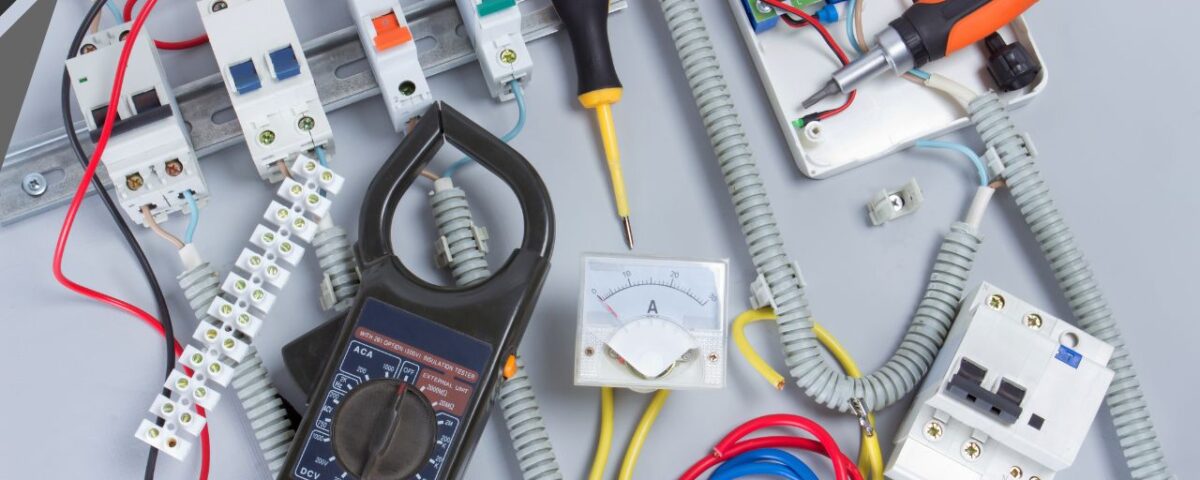
Signs of Potential Electrical Hazards: How to Identify and Prevent Short Circuits
March 25, 2025Starting a new business in the highly competitive HVAC (Heating, Ventilation, and Air Conditioning) industry can be both exciting and challenging. For a new HVAC business owner in Sydney, establishing a strong foundation for success is essential. Sydney, with its varying climate and growing demand for energy-efficient systems, provides numerous opportunities for HVAC companies. However, tapping into these opportunities requires strategic planning, smart marketing, and the development of a loyal customer base.
In this article, we will explore essential business tips for newly established HVAC businesses in Sydney. These tips will help you navigate the competitive landscape, avoid common pitfalls, and ensure long-term success.
1. Understand the Local Market
Sydney is a large and diverse city with different suburbs having unique demands. From residential homes to commercial and industrial spaces, the HVAC needs vary across these segments. Understanding your target market is critical for tailoring your services and marketing strategies.
As a new HVAC business owner, take time to:
-
Research local climate and trends: Sydney experiences a wide range of temperatures throughout the year. In summer, air conditioning systems are in high demand, while in winter, heating systems are vital. Additionally, keep an eye on trends such as the growing demand for energy-efficient and eco-friendly HVAC solutions.
-
Identify your niche: Decide whether you want to focus on residential HVAC, commercial installations, or industrial systems. Specializing in a specific area can help you stand out and become known for your expertise in that niche.
2. Obtain the Necessary Certifications and Licenses
Before starting an HVAC business in Sydney, it’s crucial to ensure that you and your team have the necessary qualifications and licenses to legally operate in the industry. In Australia, the HVAC industry is regulated, and businesses must meet specific standards for safety, environmental responsibility, and technical proficiency.
-
Licensed tradespeople: Ensure that all technicians working for your business are qualified and licensed to handle refrigerants, gas appliances, and other HVAC equipment. The Australian Refrigeration Council (ARC) issues licenses for working with refrigeration and air conditioning systems.
-
Business licenses and insurance: In addition to technical qualifications, you will need to ensure your business is properly registered and insured. This includes obtaining appropriate business insurance to protect yourself, your employees, and your customers.
3. Develop a Strong Brand Identity
Branding is essential for differentiating your HVAC business in a competitive market like Sydney. A well-defined brand not only attracts customers but also builds trust and credibility.
Here are some key steps in developing a strong brand identity:
-
Create a professional logo and website: A well-designed logo and user-friendly website will help customers find and remember your business. Your website should showcase the services you offer, customer testimonials, and contact details.
-
Build trust with reviews and testimonials: Positive word-of-mouth is crucial in the HVAC industry. Encourage satisfied customers to leave online reviews on platforms such as Google My Business, Yelp, and social media. This helps build credibility and demonstrates your expertise to potential clients.
-
Promote your unique selling proposition (USP): What sets you apart from competitors? Whether it’s your quick response time, expertise in energy-efficient systems, or commitment to customer satisfaction, make sure your USP is clear in all your marketing materials.
4. Invest in the Right Tools and Equipment
The HVAC industry requires specialized tools and equipment. Having access to the right technology is crucial for delivering high-quality services. Investing in quality equipment will also increase efficiency and safety.
Here’s what you should consider:
-
Energy-efficient solutions: As the demand for energy-efficient and eco-friendly HVAC systems rises, it’s important to stay up to date with the latest technologies. Consider offering energy-saving systems like inverter air conditioners, heat pumps, and smart thermostats to attract environmentally-conscious customers.
-
Diagnostic tools: Modern diagnostic tools can help identify problems quickly and accurately. These tools not only improve service quality but also reduce the time it takes to complete a job, allowing your team to handle more clients.
-
Maintenance tools: In addition to installation, maintenance is a significant part of an HVAC business. Investing in proper maintenance tools will help keep your clients’ systems running smoothly and increase your service revenue through recurring business.
5. Focus on Customer Service
The success of any business depends heavily on its ability to satisfy customers. In the HVAC industry, where clients are often relying on your expertise and prompt service, maintaining excellent customer relations is essential for building long-term business success.
Here’s how you can focus on customer service:
-
Offer warranties and guarantees: Offering warranties and guarantees on your work can give customers peace of mind. It shows that you stand behind your services and are committed to delivering quality results.
-
Provide prompt responses: Customers expect timely responses, especially in the HVAC industry, where urgent issues such as a broken air conditioner during summer or a malfunctioning heater in winter can cause discomfort. Implement a system that allows for quick responses to inquiries and efficient dispatch of technicians.
-
Communicate clearly and professionally: Ensuring clear communication throughout the service process is key. From the initial inquiry to the completion of the job, keeping the client informed builds trust and satisfaction.
6. Implement an Effective Marketing Strategy
Marketing your new HVAC business is one of the most important aspects of growth. With the right approach, you can attract a steady stream of customers, build a strong reputation, and stand out in a competitive market.
Here are a few strategies to consider:
-
Local SEO: Make sure your business shows up in local search results when customers are looking for HVAC services. This can be achieved through Google My Business, local citations, and creating locally optimized content on your website.
-
Social media marketing: Platforms like Facebook, Instagram, and LinkedIn can be powerful tools for reaching potential customers. Post regularly about your services, industry tips, and successful installations to engage with your audience.
-
Referral programs: Word-of-mouth referrals can be highly effective in the HVAC industry. Encourage your satisfied customers to refer others by offering incentives, such as discounts on future services.
-
Paid ads: Consider running paid advertising campaigns through Google Ads or Facebook Ads to target specific customer demographics in Sydney. You can tailor your ads to focus on seasonal services like air conditioning installation in the summer or heating system maintenance in the winter.
7. Build Strong Relationships with Suppliers
In the HVAC industry, having reliable suppliers for quality equipment and parts is essential. Establish strong relationships with trusted suppliers to ensure you have access to the best products and materials at competitive prices.
-
Negotiate discounts and bulk purchasing: By building relationships with suppliers, you may be able to negotiate better prices or bulk purchase discounts, which can improve your profit margins.
-
Stay updated on new products: Suppliers can provide you with information on new HVAC products and technology, helping you stay ahead of the competition.
8. Monitor Your Financials and Cash Flow
Financial management is crucial for the long-term viability of your HVAC business. Effective cash flow management ensures you can cover expenses, pay staff, invest in new equipment, and reinvest in growth.
Here are some tips to manage your financials:
-
Track expenses carefully: Keep track of every expense, from tools and equipment to fuel for vehicles and employee wages. This will help you understand where you are spending the most and identify areas where you can reduce costs.
-
Set aside funds for emergencies: Unexpected situations can arise, so it’s important to have a financial cushion for emergencies. Setting aside funds for maintenance, repairs, and slow periods ensures your business remains stable.
-
Invest in accounting software: Use accounting software to manage invoices, track payments, and monitor your financial health. This will streamline your operations and give you a clear picture of your business’s financial status.
9. Build a Reliable Team
Your employees are the backbone of your HVAC business. Building a team of skilled, reliable technicians who share your commitment to quality work and excellent customer service is essential for success.
-
Provide ongoing training: The HVAC industry is constantly evolving with new technologies and techniques. Invest in ongoing training to ensure your team remains up-to-date with the latest developments.
-
Foster a positive work culture: A positive work environment leads to higher employee satisfaction and retention. Encourage teamwork, recognize achievements, and provide incentives to motivate your staff.
Starting an HVAC business in Sydney can be incredibly rewarding, but it requires careful planning and strategic execution. By focusing on market research, certifications, customer service, and effective marketing, you can establish a solid foundation for your HVAC business.
With the right tools, a reliable team, and a strong focus on customer satisfaction, your business will be positioned for success in the competitive Sydney market. As experienced entrepreneurs like Tyson Orth have shown, the key to sustained growth lies in a combination of professional expertise, strong relationships, and continuous improvement.
